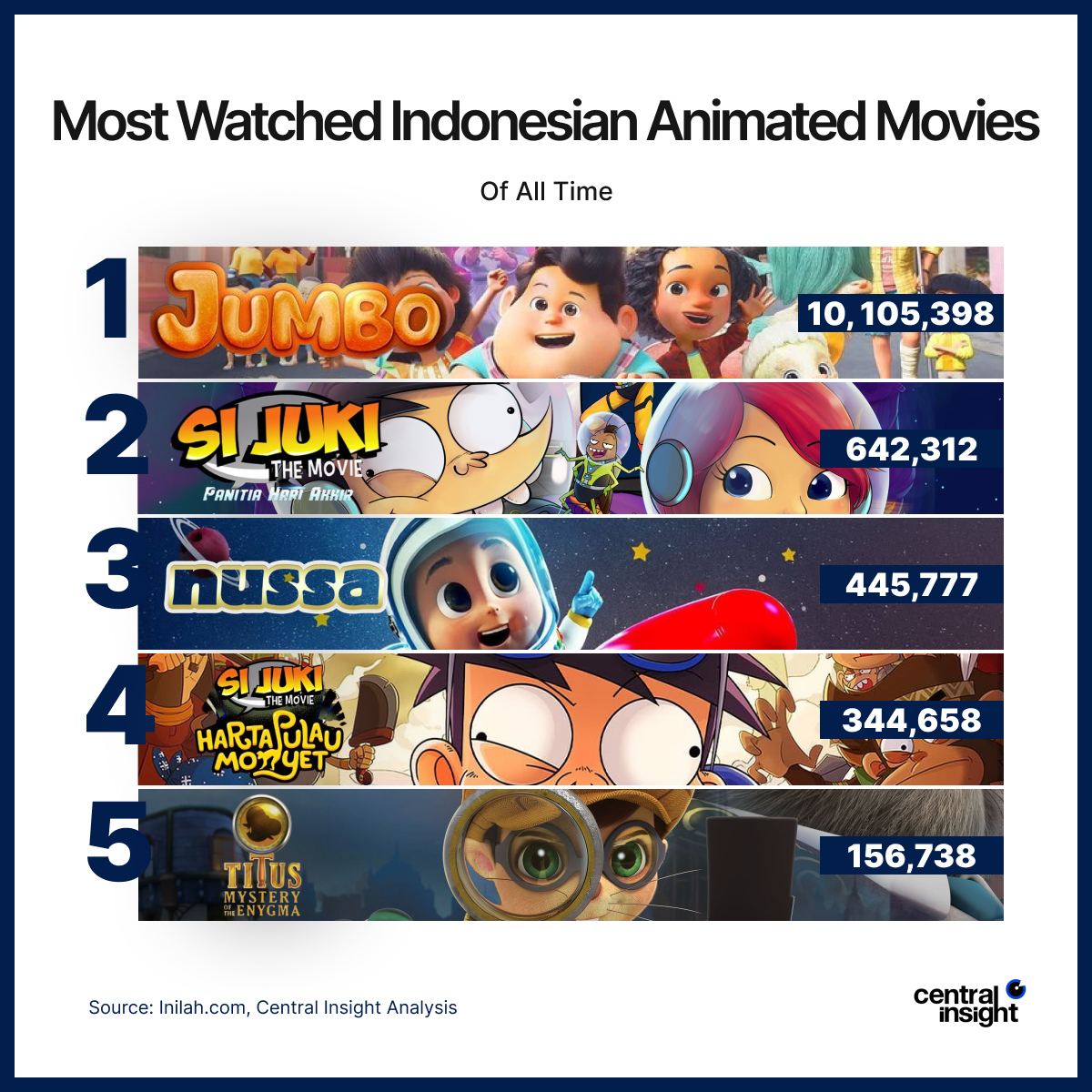For years, Si Juki The Movie (2017) was Indonesia’s most‑watched animated feature, drawing roughly 642,000 viewers in its first week and cult fame among comic fans. Yet its scale stood in stark contrast to Jumbo, which hit over 10 million admissions by mid‑2025.

Jumbo’s narrative success is rooted in its authentic portrayal of Indonesian childhood and cultural values. Set against familiar local backdrops, it tells the story of Don, a large orphaned boy discovering self‑worth through friendship and a talent show inspired by his parents’ storybook.
Authentic Storytelling and Connecting with Indonesian Values
Film critic Eric Sasono noted that Jumbo satiates the audience’s demand for storytelling that resonates emotionally and culturally. The themes of family, kindness, and perseverance strike a universal chord, while still being firmly rooted in Indonesian social values. Such relatable content contrasts with fantasy-heavy animated films, and clearly resonated, especially during the Eid school holidays when many families watched together.
Reviews highlight that the film achieved its emotional impact without resorting to preachy messages, because its heart felt genuine and inclusive. A Reddit user reflected: “this movie educates countless children… introduces values that go beyond the screen… children can finally see themselves on screen”.
Read Also: Horror No More? Why KKN Desa Penari’s Reign Ended
Its cultural authenticity helped Jumbo eclipse Si Juki: Panitia Hari Akhir—which recorded about 642,000 admissions in 2017—and set a new standard in local animation storytelling. That comparative scale—Jumbo’s ~10 million viewership compared to Si Juki’s six‑hundred‑thousand—underscores how resonant the narrative was.
In short, Jumbo showed that culturally authentic storytelling paired with emotional sincerity can build an animated film that not only entertains but connects deeply with a national audience.








